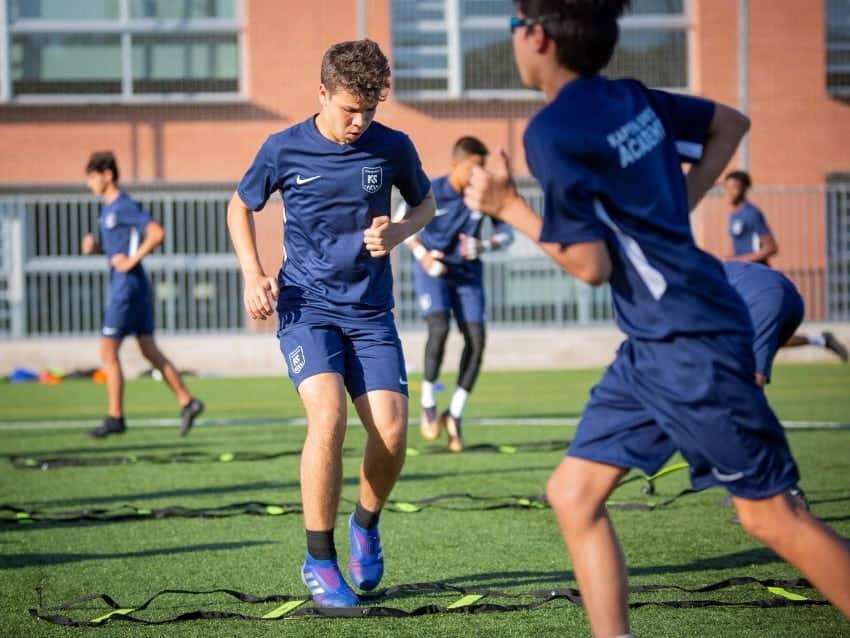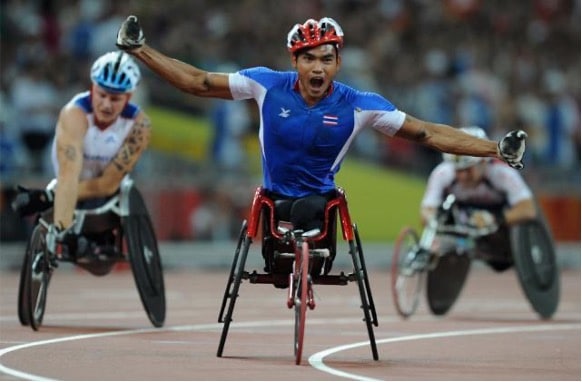Sport benefits both children and teenagers as well as adults in a variety of ways. However, when it reaches a high level, people's psychological states, particularly those of teenagers, need to be tightly under control. Imagine how difficult it is for a child or adolescent to manage stress, exhaustion, pressure, training, and all the other situations of daily life if it is already tough for an adult to do so. High performance athletes are known for their consistency, tenacity, and fortitude in the face of demanding practise sessions and the pressure of competition. Any elite athlete's mental toughness is a crucial component of their professional and personal development.
This mental toughness is important for the athlete and their sport, but it also frequently distinguishes those who succeed in many different areas of life. Athletes undoubtedly experience a lot of stress, both during competition and in other facets of life. Therefore, it is transcendental that they work on a mental development that enables them to develop the necessary mental fortitude to deal with any of the aforementioned factors. In this week's essay, we'll examine the goals that any teen athlete should have in order to handle the pressure and develop appropriate mental toughness. To be able to handle the pressure, this is necessary,Both their academic progress and their athletic aspirations for the season are met.Both their academic progress and their athletic aspirations for the season are met.
On the other hand, we don't want to pass up the chance to emphasise how crucial it is for the professionals working with these young athletes to be able to recognise that they are working with individuals who are still developing. Many instructors are unprepared and lack the necessary understanding to handle these athletes with the utmost care. We then go on to say that you should always rely on licenced experts and graduates in the field of physical activity and sport sciences. Here are some crucial rules to abide by if you want to maintain good mental health throughout adolescence.

Main Characteristics of a Great Mental Toughness
Positive Vibes
First, having a positive attitude is, in my opinion, the most crucial factor in developing good mental toughness. Although it sounds simple to say, it's challenging to put into practise. Contrary to popular belief, positive attitudes can be developed through effort and growth.
There are certain persons who are naturally optimistic about some facets of life. Since the moment of our birth, we have been exposed to environmental factors that shape our personalities and ways of being. However, there are those who, as a result of the events they experienced, are in some way. A optimistic outlook can, however, be improved. This is very significant because a teenager athlete's success can frequently depend on their mindset (1). The athlete must concentrate on his strengths and limitations in order to improve this positive mindset.
Once they have been identified and assimilated, they should work to improve some of them while enhancing others while maintaining a positive outlook. All of this is inextricably linked to one's perception of and regard for oneself. In fact, Lochbaum M. and associates discovered that performance is influenced by a positive outlook and rising confidence (2).

Pressure under control
Second, it's challenging for people to perform under pressure. Today, we struggle to perform when we are under a lot of pressure, whereas our ancestors were able to respond when they were under extreme pressure (such as when they had to hunt or defend themselves against a predator). So much so that research has already been done to establish stress as a health issue for adolescents (3). Furthermore, the COVID-19 pandemic has made all of this worse and is now becoming more obvious 4.
Pressure under control
Second, under pressure, people struggle to perform well. When we are under pressure now, we find it difficult to perform, yet when our predecessors were forced to hunt or defend themselves from a predator, they were able to respond. In fact, research has previously been done to link teenage stress to health problems (3). The COVID-19 epidemic has also made everything worse and is now more visible (4).
As we can see, pressure and stress are two significant aspects that may affect an athlete's performance in both competition and academic settings. Therefore, it is crucial that teenagers develop the skills necessary to handle stress and preserve their mental toughness. Adolescent athletes experience pressure to perform well and to win over their coaches and loved ones, either directly or indirectly.
As we can see, pressure and stress are two significant aspects that may affect an athlete's performance in both competition and academic settings. Therefore, it is crucial that teenagers develop the skills necessary to handle stress and preserve their mental toughness. Adolescent athletes experience pressure to perform well and to win over their coaches and loved ones, either directly or indirectly.

Set Realistic goals
The third and last factor is reasonable goal setting. It is, in my opinion, one of the most crucial factors in developing good mental toughness. The athlete is committed to attaining that level when they set goals they can accomplish. However, if the goals are too high or too low, the athlete starts to lose enthusiasm or feels overwhelmed by the task at hand, and his mental toughness suffers as a result. Instead of imposing the goals we as coaches want to see accomplished, we should concentrate on what the athlete can accomplish.

For this, it is important to understand the athlete's unique personal circumstances because living in a high performance facility and living with his or her family in their place of origin are two very different situations. It also makes no difference if the athlete is 10 or 16 years old. Athletes who set lofty objectives as children are more likely to "burn out" prematurely and fall short of their potential. In reality, there are numerous well-known instances of young stars being signed by big teams with tremendous hopes, only to fail because of a lack of mental toughness.
The Williams sisters are a fantastic illustration of this mental tenacity. The true story-based film "King Richard," which we heartily recommend, depicts the lives of two tennis players and spectacularly demonstrates how mental toughness contributes to athletic achievement. Focus, regular exercise, and the development of strong mental toughness often determine success or failure.
How Difficult is to Achieve Mental Toughness?
The idea that developing good mental toughness is simple is untrue. Desiring to find it is the simple part. The challenging task would be to let children and teenagers realise that it is a crucial component of sports performance. Young athletes also have a harder time accepting the idea that they need to practise mental toughness. However, we as coaches can indirectly improve that mental toughness by making minor adjustments to each plan. Finally, we'll go through various techniques that an athlete might use to develop his mental toughness without even realising it.
The idea that developing good mental toughness is simple is untrue. Desiring to find it is the simple part. The challenging task would be to let children and teenagers realise that it is a crucial component of sports performance. Young athletes also have a harder time accepting the idea that they need to practise mental toughness. However, we as coaches can indirectly improve that mental toughness by making minor adjustments to each plan. Finally, we'll go through various techniques that an athlete might use to develop his mental toughness without even realising it.
However, according to one of the best football coaches in Spain, the secret is to take it "Match by Match" or "Training by Training." When every practise session is the most crucial match, success is attained. The training sessions are designed to help us get better, and if we give each one our all, the improvement will be apparent.

Last but not least, if you want to achieve a good mental toughness, you’ll have to maintain a healthy teamwork and a high quality cohesion between coach and athletes. Fostering a good team atmosphere and a life beyond training is crucial for good mental toughness. There is a saying that “What happens in the field stays in the field” and so it should. We must teach our athletes that if one day we don’t have a good training session, nothing happens. Life goes on, and the session will be better tomorrow. Support from both the coach and the environment fosters mental toughness. Having young athletes socialize will also promote good mental toughness in the long run.
Conclusion
To summarize, mental toughness is a very important skill for young athletes who want to achieve success in their sport. We can define mental toughness as the ability to stay focused and positive, even in difficult situations. To develop this skill, there are tools that we as coaches must provide to athletes. Among them we highlight:
- Having a positive attitude.
- Control pressure.
- Establish realistic goals.
Finally, it is essential that there is a great working environment with unity among all members of the group and with the coach himself. In the same way, athletes should focus on the daily tasks and not be wrongly focused on the competition. By following these practical tips, young athletes will be able to develop their mental strength and deal effectively with competition.





No comments:
Post a Comment